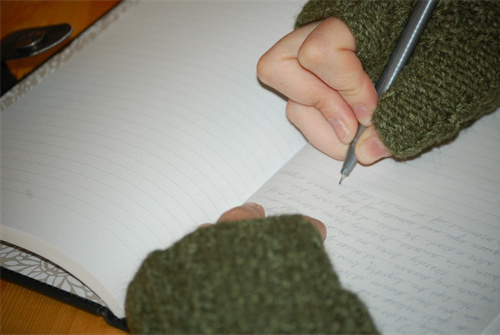外研社高二英語課件

外研社高二英語課件
高二了,同學們學習的`課程也會增多?那么如何才能不讓自己的英語成績下降呢?
Lesson objectives:
1。Guide students to learn about the usage of auxiliaries used in identifying.
2。Make sure that students can make dialogues with the following patterns: You must have been …/ She can't have been …/ She may/might have done …/ You might have done …/ He couldn't have done … etc.
3。Train students' ability of observing things, and describing a certain situation in detail.
Teaching aids: a multi-media computer, a recorder, word cards, etc.
Teaching procedure:
Step1。Preparation
1。Revision
Do a word game to review the words in Unit 21 and in this way, lead in some words in this lesson so as to see whether the students have previewed these new words.
Directions: Ask one student to come to the front. Let him/her explain the meaning of the word or phrase on the word card shown by the teacher. But the other students can't see the word card. They may guess it through his /her explanation. (He /She can explain the word in language, through gestures or body languages, but he couldn't include any part of the word or phrase).
Words or phrases shown on the cards: wedding, generation, hammer, iron, hero, note, memory, familiar, single, tale, servant, revolutionary.
2。Presentation
Ask the students to list some revolutions. Teacher can ask: Do you know any revolutionaries or wars in the world history? (Yes.) Can you name some of them?
The Ss may offer the answers like: the Anti-Japanese War, the American Revolution, the American Civil War, the French Revolution and even the Industrial Revolution.
Then teacher directs the Ss to say something about the French Revolution. When did it break out? (In 1789.) What was the cause of the revolution? (Some peasants and oppressed people ran into the Bastille.) Did they win the revolution? (Not , but shook the foundation of the Monarchy 君主政權, also showed the strength of the Newly born Bourgeoisie 新興資產階級.)
It doesn't matter if the Ss cannot give proper answers to all the questions. Teacher may give them a few minutes for discussion, so that they can talk about it.
Teacher's conclusion: You see, not all the revolution can win in the end, but it must have some effect on the world. So was the French Revolution. And an English novelist wrote a story about this famous event、Do you know the novelist and the name of the book? (Charles Dickens, A Tale of Two Cities.)
Teacher may continue: Yes, the dialogue we are going to read just happened at such a time. It was between a revolutionary and his friend.
Step2。The body of the lesson
1。Listening
Get the Ss to look at the picture on the Page 55, SB, and say: Watch carefully and tell me what you can see in the picture. (A castle, a farmer on a cart, two soldiers… there are two feet on the cart.) What do you think was happening? (They must be the feet of the revolutionary./ He might be found by the soldiers./ He must be in the cart hiding from the soldiers, and he must succeed…)
Then let the Ss listen to the tape with two questions:
Did the revolutionary get into the castle? (Yes, he did.)/ What did he do then? (He asked a servant to help him and they set fire to the castle.)
2。Drill
Get the Ss to read the dialogue in pairs. While the Ss are practising, the teacher should walk around and correct their pronunciation as necessary. Then ask some pairs to present the dialogue to the class.
3。Comprehension
1) Let the Ss read the dialogue carefully again, and try to find some more detailed questions to ask in pairs.
Possible questions and answers:
(1)How did B got into the castle?
(He hid in a farmer's cart which was taking vegetables into the castle.)
(2)What did the servant do when he was waiting by the kitchen door?
(She opened the door to fetch some wood.)
(3)Why didn't the servant call for help?
(She was brave; she understood what B was talking about and she knew that the rich were the enemies of the people of France.)
2) Word formation: Check the noun form of each adj. (Ex. Ⅱ in AB)
Revolutionary adj. & n.----________ n.
mad adj.----________ n.
brave adj.----________ n.
cruel adj.----________ n.
Answer: revolution, madness, bravery, cruelty
3)Deal with the grammar: auxiliaries used in identifying.
Ask the Ss to make sentences according to the following pictures with the above patterns. (Ex. Ⅲ in AB)
Examples:
Picture1: He might have caught a bad cold.
Picture2: He couldn't have found any letters in the mailbox.
Picture3: He couldn't have found the right way there.
Picture4: He must have been drawing pictures.
Step 3。Consolidation
1。Practice
1) Match the two parts to make the sentences acceptable. (Ex. Ⅳ in AB)
(1)I was still working in the office at ten o'clock last Sunday evening.
(2)It took me two hours to get there.
(3)I phoned him many times yesterday, but I couldn't get through.
(4)She refused to tell me her name and address.
(5)He was caught by the enemy, but later he escaped from the prison.
(6)She said nothing to me when she left.
A。You must have gone to the wrong way.
B。She must have been a very careful woman.
C。He must have been very lucky.
D。You must have been very busy.
E。You might have got the wrong number.
F。She must have been unhappy with you.
Answers: (1) ----D (2) ----A (3) ----E (4) ----B (5) ----C (6) ----F
2) Ask the Ss to listen to the dialogue again and fill in the blanks. (Ex. Ⅴ in AB)
This is a story about what a revolutionary did in 1789 French Revolution. One morning he got into a castle by ________ in a farmer's cart. As it was not yet light, it was easy for him to stay ________. Then he ________ by the kitchen do
or till a servant ________ to some wood. The man ________ to her and ________ her to let him in. She ________ a brave woman. She ________ that the revolution was for the poor and that the man was not an enemy of hers. Then she ________ him light a fire that ________ for many miles.
Answers: hiding / hidden / waited / came / fetch / spoke / persuaded / was / knew / helped / could be seen
2。Development
Ask the Ss to make up a dialogue between the revolutionary and the servant/ his friend.
They can use their imagination. (Ex. Ⅵ in AB)
Tasks:
Student A: The servant or friend. Ask about the situation in detail. Try to use the following expressions as many as possible: must / couldn't / might have been / done / been doing…
Student B: The revolutionary. Try to imagine other ways you managed to get into the castle.
Homework
Write a report about the dialogue you made up above.








